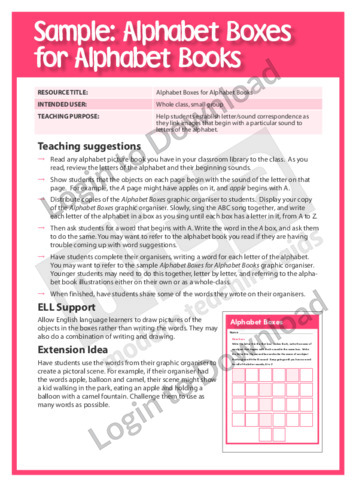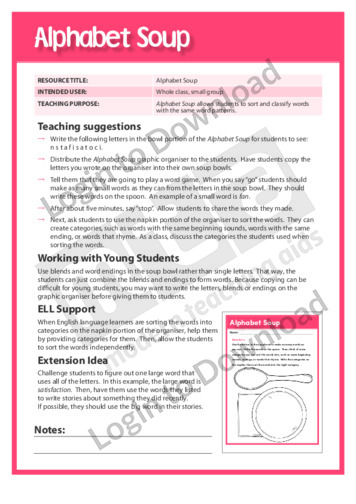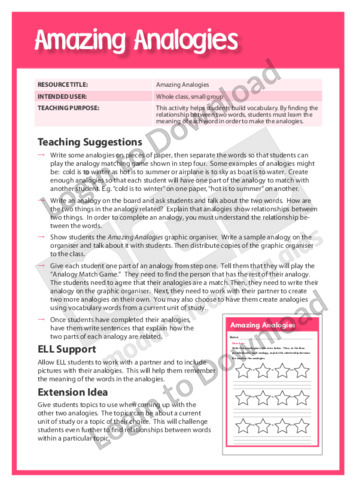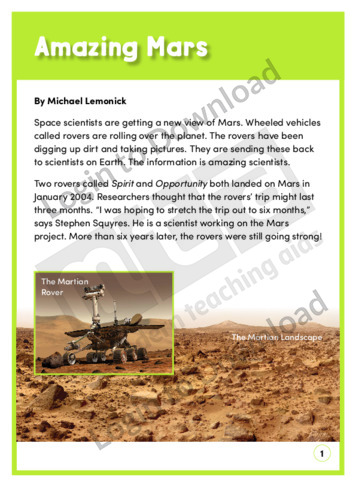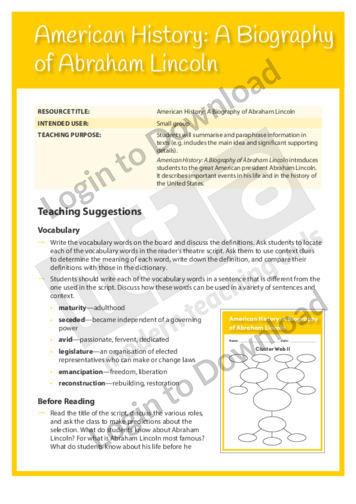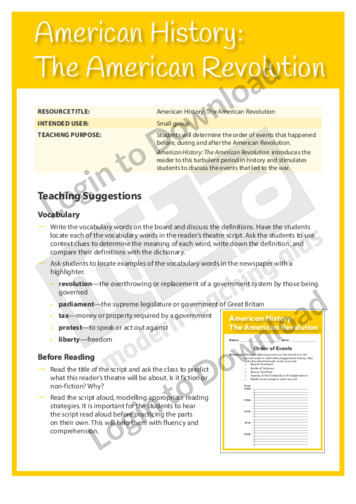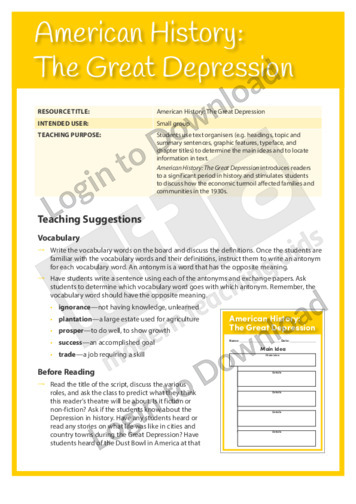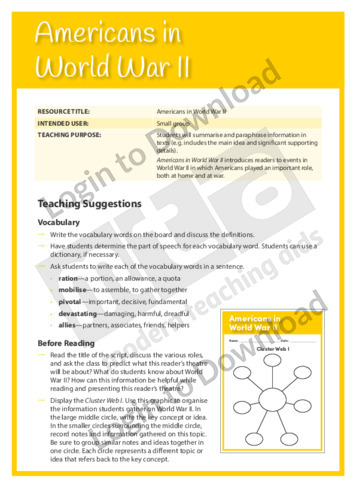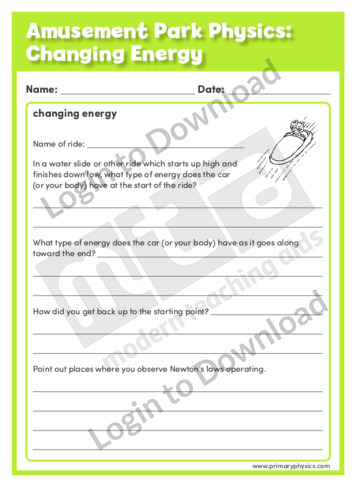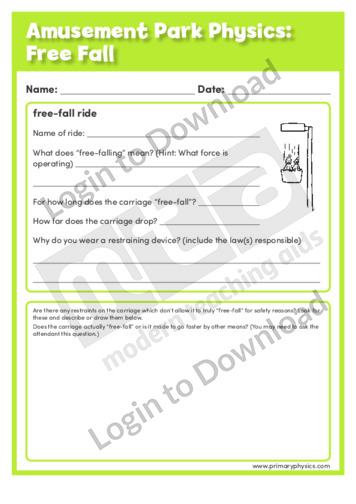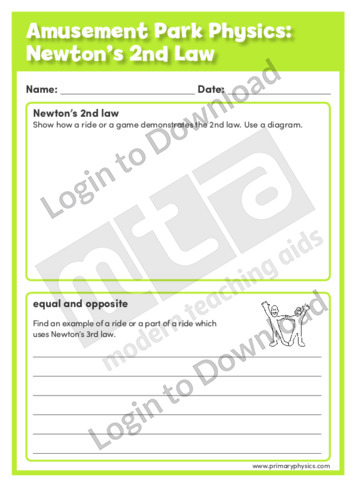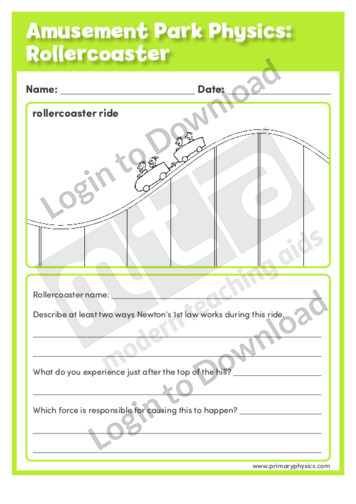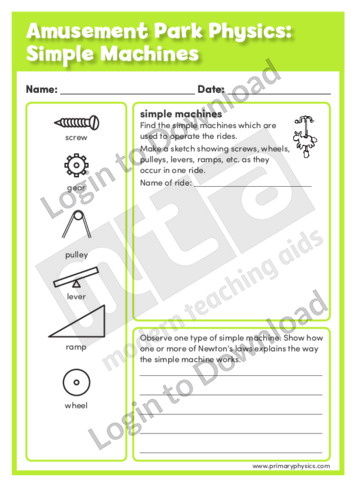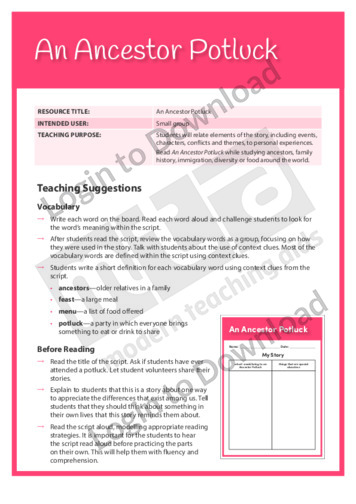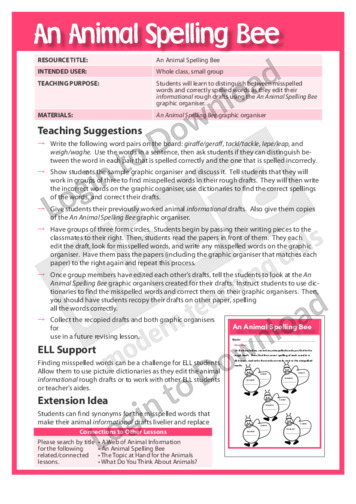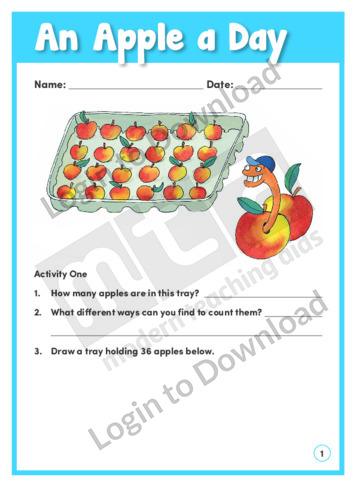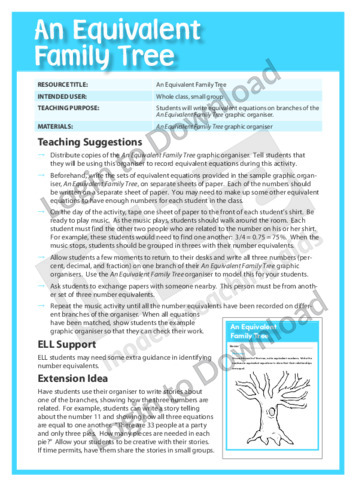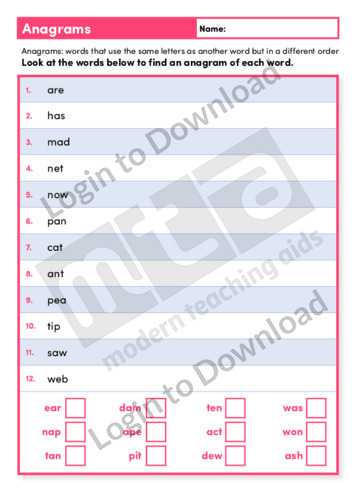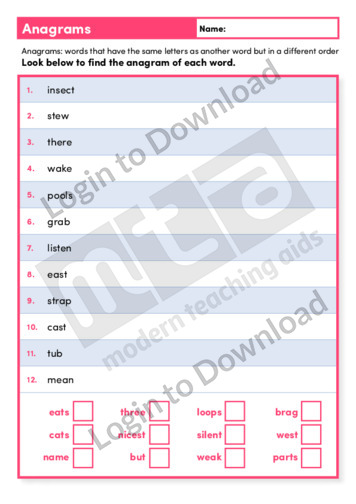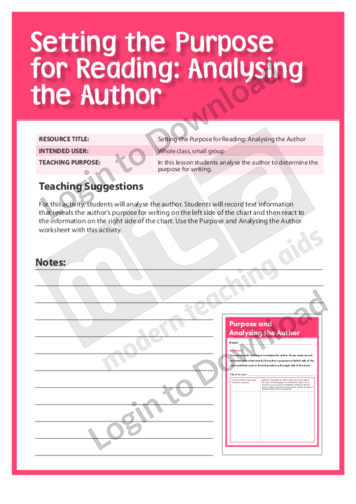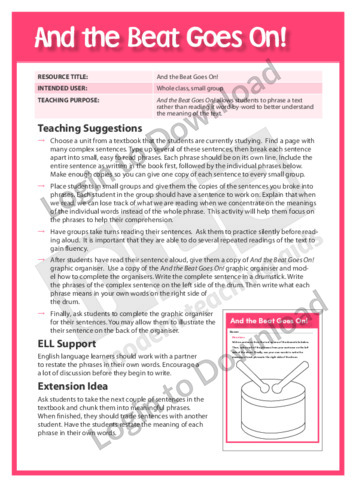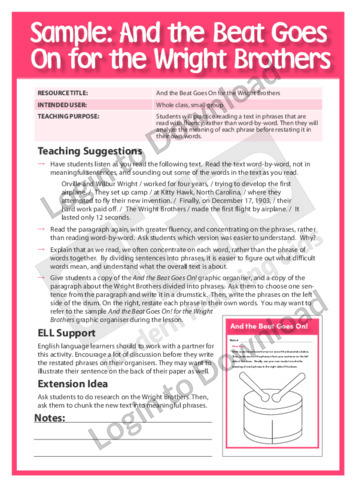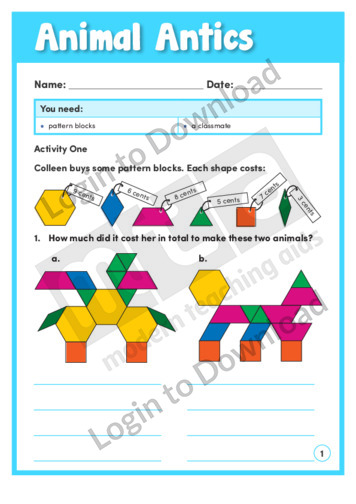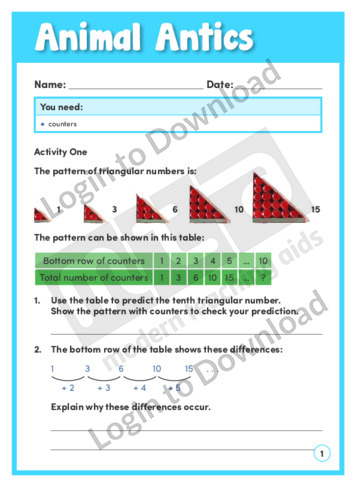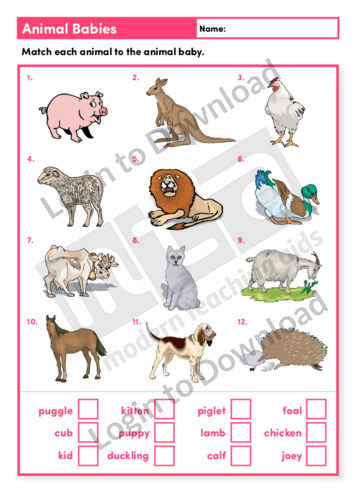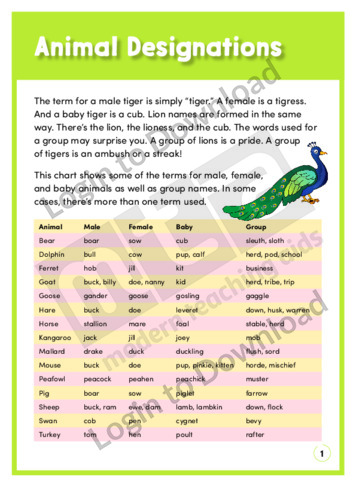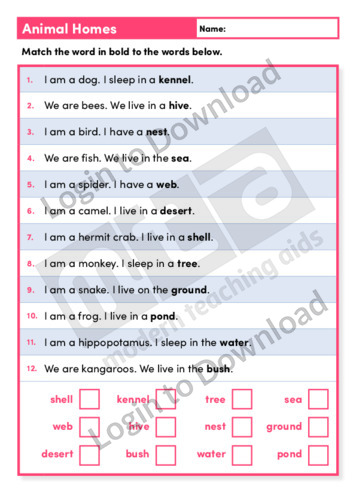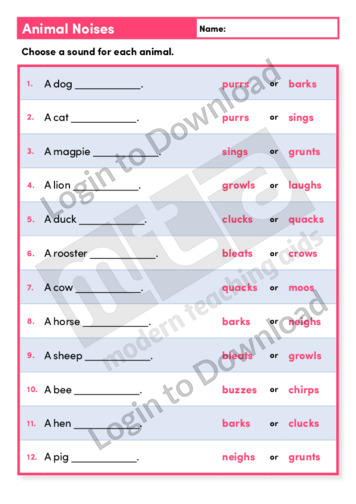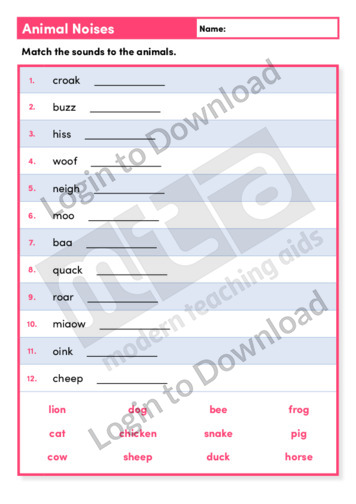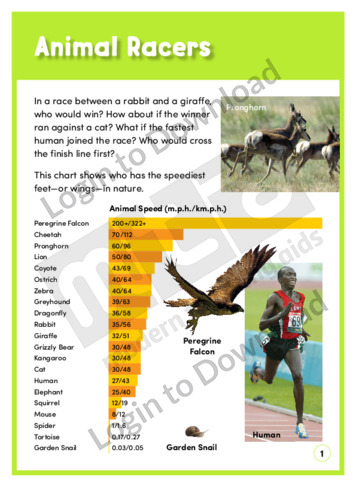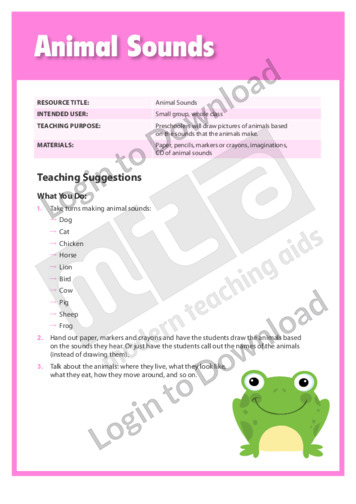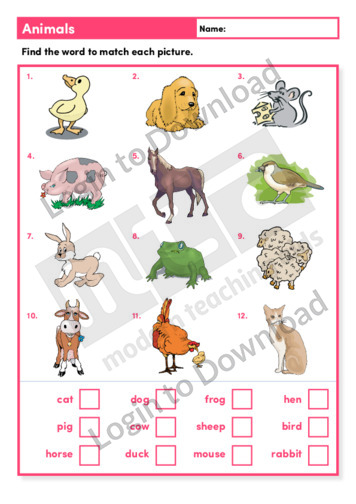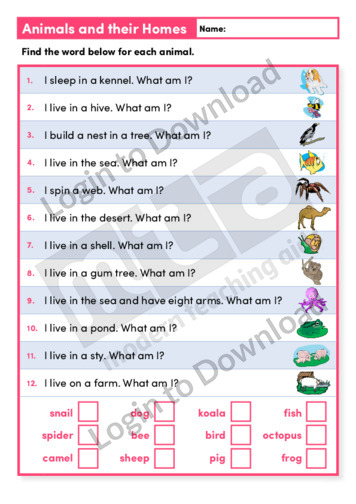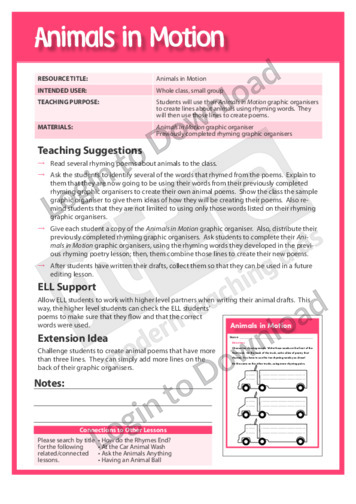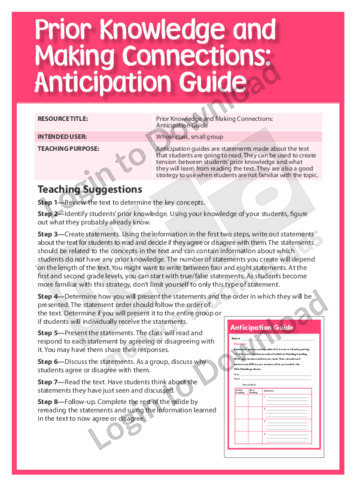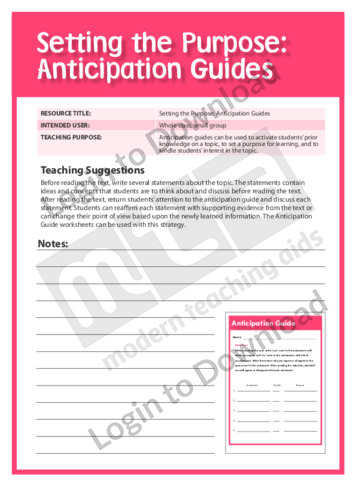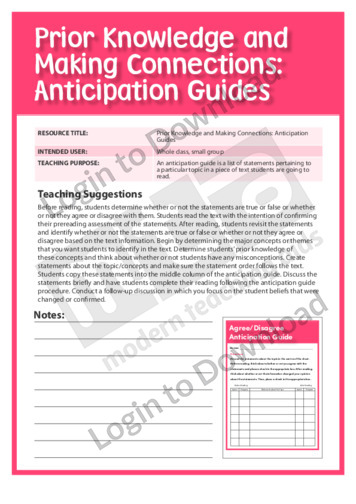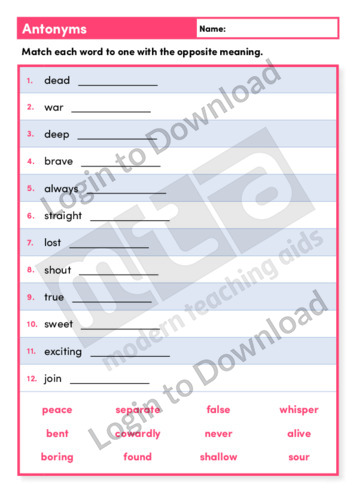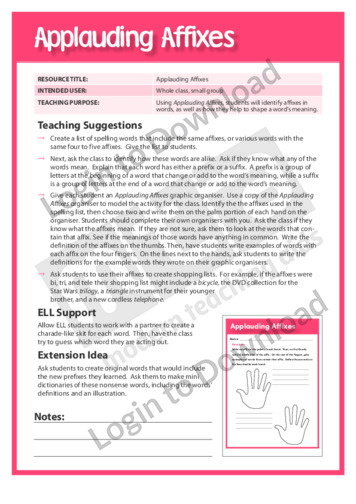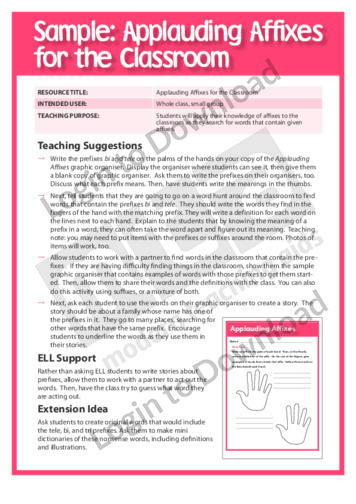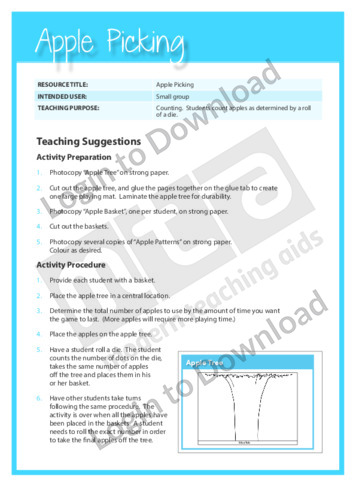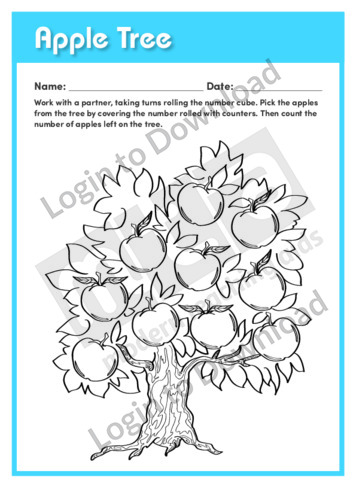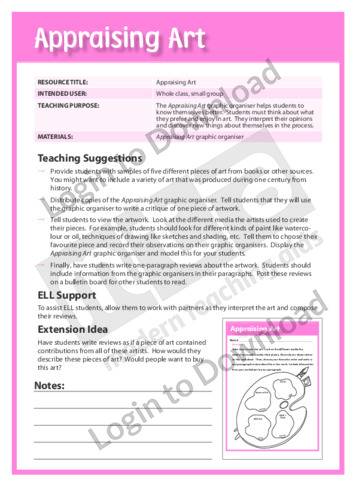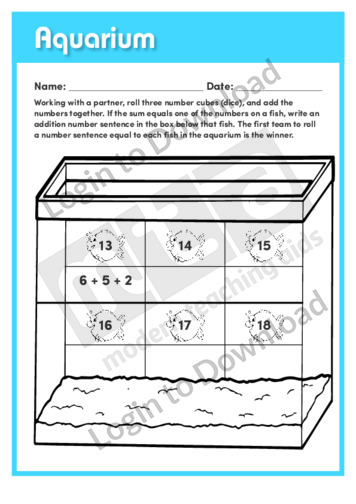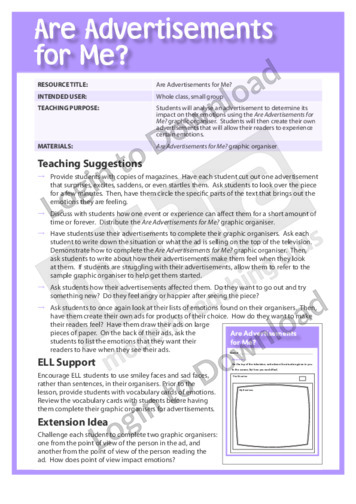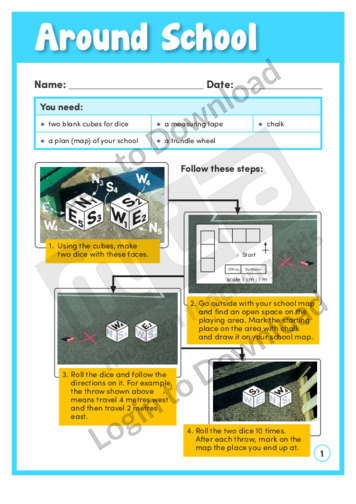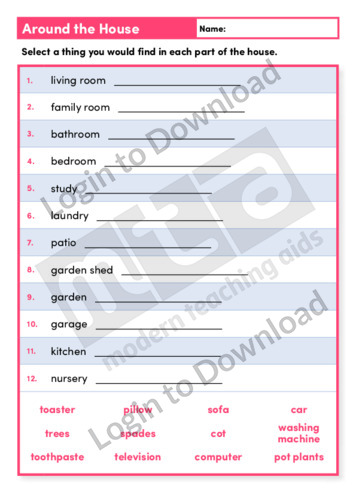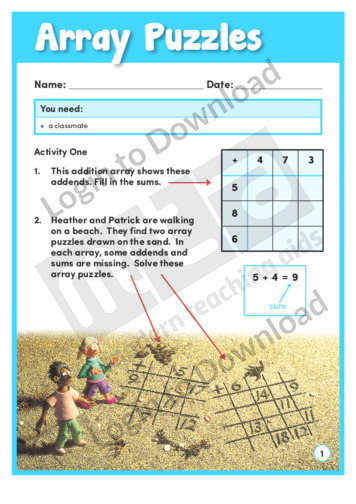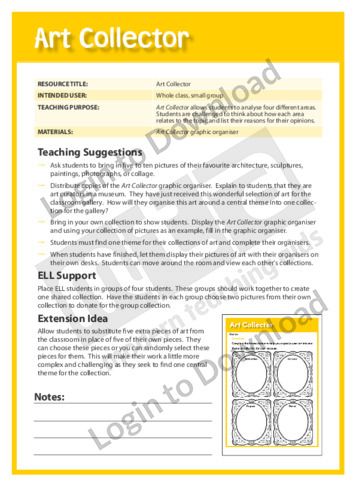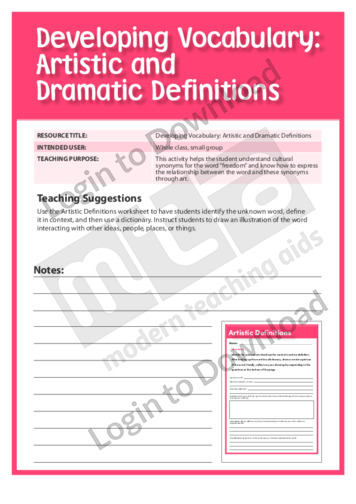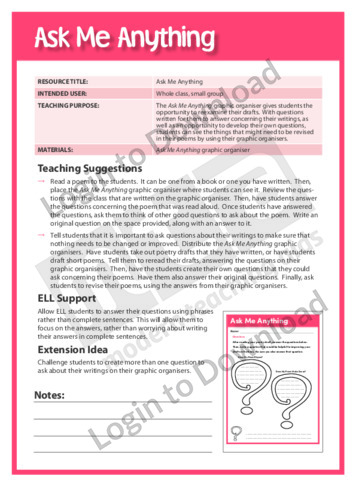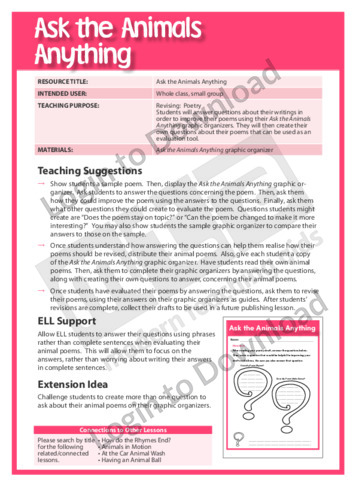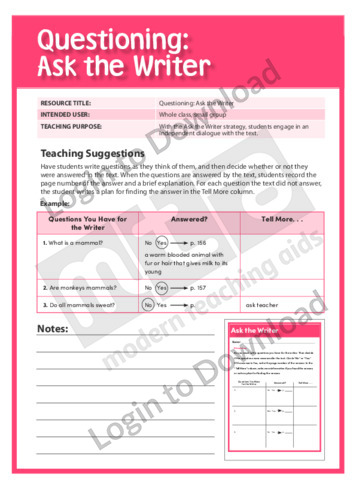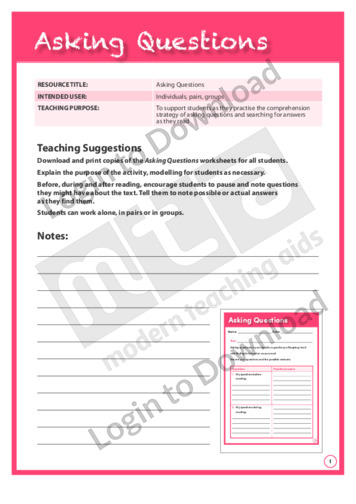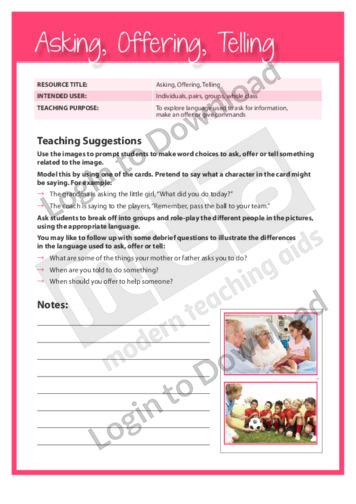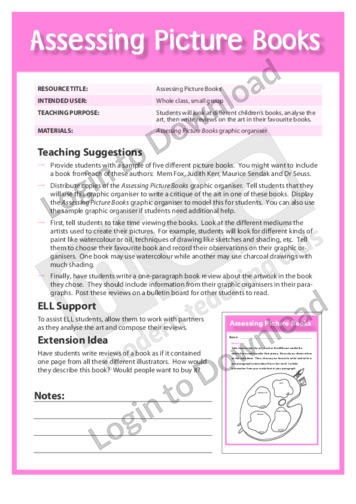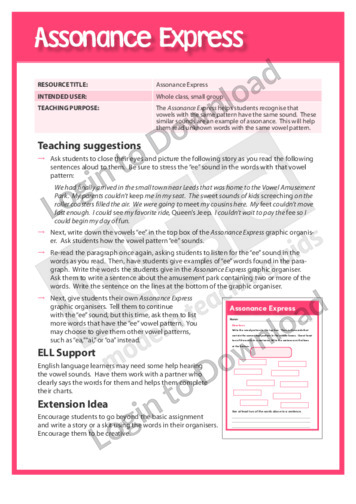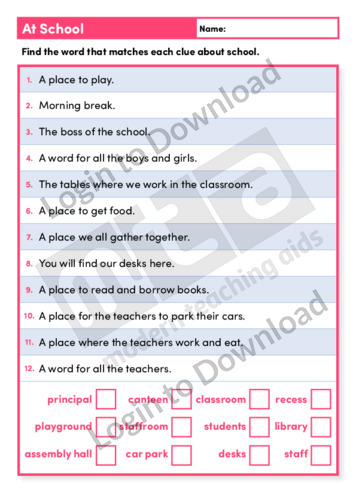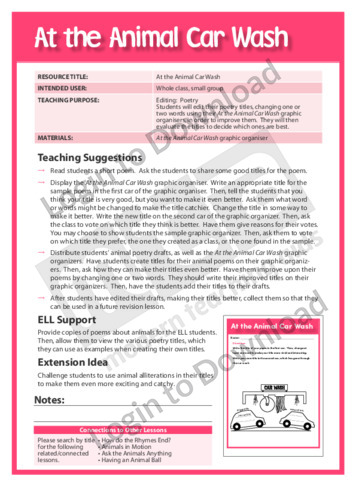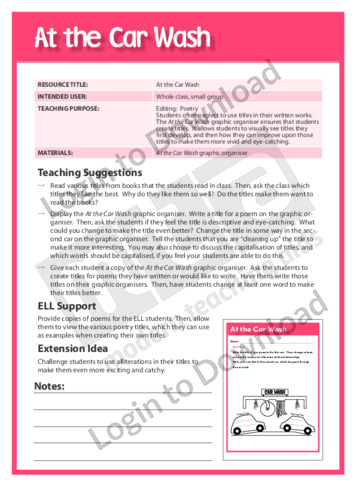This graphic organiser, ‘Alphabet Boxes for Alphabet Books’ helps students to establish letter/sound correspondence as they link images that begin with a particular sound to letters of the alphabet.
This graphic organiser, ‘Alphabet Soup’ allows students to sort and classify words with the same word patterns.
This graphic organiser, ‘Amazing Analogies’ helps students to build vocabulary by finding the relationship between two words, they must learn the meaning of each word in order to make the analogies.
This Readers Theatre activity, ‘Biography: Abraham Lincoln’ encourages students to summarise and paraphrase information in texts. It also builds reading fluency. This activity includes a script for 5 readers.
This Readers Theatre activity, ‘American History: The American Revolution’ encourages students to organise events in a story into sequential order using a timeline. It also builds reading fluency. This activity includes a script for 7 readers.
This Readers Theatre activity, ‘The Great Depression’ encourages students to use text organisers to determine the main ideas and to locate information in texts. It also builds reading fluency. This activity includes a script for 5 readers.
This Readers Theatre activity, ‘World War 2’ encourages students to summarise and paraphrase information in texts. It also builds reading fluency. This activity includes a script for 4 readers.
This learning activity, ‘Amusement Park Physics: Changing Energy’ supports students to identify the conversion of potential energy to kinetic energy whilst on excursion.
This learning activity, ‘Amusement Park Physics: Free Fall’ supports students to identify the forces involved when on a free fall ride at an amusement park.
This learning activity, ‘Amusement Park Physics: Newton’s 2nd Law’ helps students to understand how a ride or game on an excursion demonstrates Newton’s second and third laws of motion.
This learning activity, ‘Amusement Park Physics: Rollercoaster’ supports students to identify how Newton’s first law of motion works when riding a rollercoaster on an excursion.
This learning activity, ‘Amusement Park Physics: Simple Machines’ supports students to identify simple machines used to operate rides whilst on excursion.
This Readers Theatre activity, ‘An Ancestor Potluck’ encourages students to relate elements of a story, including events, characters, conflicts and themes, to personal experiences. It also builds reading fluency. This activity includes a script for 4 readers.
This graphic organiser, ‘An Animal Spelling Bee’ asks students to identify misspelled words in their animal drafts, making corrections with dictionaries.
This learning activity, ‘An Apple a Day’, features arrays in the form of an apple tray and an ice cube tray. Students are asked to use the trays to solve addition and multiplication problems. An answer sheet is provided and includes teaching notes with suggestions for supporting learning and further exploration.
This graphic organiser, ‘An Equivalent Family Tree’ asks students to write equivalent equations on the branches of the ‘Equivalent Family Tree’.
This spelling activity, ‘Anagrams’ provides opportunities for practice with letter placement and word structure.
This spelling activity, ‘Anagrams’ provides opportunities for practice with identifying anagrams.
This content area reading learning activity, ‘Analysing the Author,’ helps students determine the purpose for writing. It has students record text information that reveals the author’s purpose for writing and then react to the information.
This graphic organiser, ‘And the Beat Goes On’ allows students to phrase a text rather than reading it word-by-word to better understand the meaning of the text.
This graphic organiser, ‘And the Beat Goes On for Wright Brothers’ asks students to practise reading a text in phrases that are read with fluency, rather than word-by-word, to better understand the meaning of the text.
This learning activity ‘Animal Antics’ also includes a learning activity in which students work with pattern blocks with assigned monetary values. Students add up the value of different animals made from the pattern blocks, then create their own designs for a classmate to calculate. In the game, students join blocks and add the values. An …More
The learning activity, ‘Animal Antics’ supports the exploration of triangular numbers and their special properties. Using two fun activities, students identify the way triangular number sequences can be formed. An answer sheet is provided and includes accompanying teaching notes with suggestions for supporting learning and further exploration.
This vocabulary activity, ‘Animal Babies’ supports vocabulary development by encouraging students to match animals to their babies.
This content area reading activity, ‘Animal Designations’ is a science based reading comprehension exercise encouraging students to interpret charts and draw conclusions from them.
This vocabulary activity, ‘Animal Homes’ supports vocabulary development by encouraging students to identify the correct animal words in context.
This vocabulary activity, ‘Animal Noises’ supports vocabulary development by encouraging students to match the correct sound to each animal.
This vocabulary activity, ‘Animal Noises’ supports vocabulary development by encouraging students to match the correct animal to each sound.
This content area reading activity, ‘Animal Racers’ is a science based reading comprehension exercise encouraging students to interpret charts and draw conclusions from them.
This art project ‘Animal Sounds’ enables students to draw pictures of animals based on the sounds the animals make. It is a fun and engaging aural to visual exercise for early learners and is aimed at developing students’ awareness of basic artistic procedures.
This vocabulary activity, ‘Animals’ supports vocabulary development through word and picture association.
This vocabulary activity, ‘Animals and Their Homes’ supports vocabulary development by encouraging students to use vocabulary related to animals and their habitats.
This graphic organiser, ‘Animals in Motion’ supports students in creating poems about animals by combining rhyming words and sentences.
This content area reading learning activity, ‘Anticipation Guide,’ can be used to create tension between students’ prior knowledge and what they will learn from reading the text. It is aimed at helping students set a purpose for learning and kindling their interest in the topic.
This content area reading learning activity, ‘Anticipation Guides,’ helps students set a purpose for reading. It is aimed at activating students’ prior knowledge about a topic, helping them set a purpose for learning and kindling their interest in the topic.
This content area reading learning activity, ‘Anticipation Guides,’ features a list of statements pertaining to a particular topic in a piece of text students are going to read. It is aimed at activating students’ prior knowledge about a topic, helping them set a purpose for learning, and kindling their interest in the topic.
This vocabulary activity, ‘Antonyms’ supports vocabulary development by encouraging students to use words that have opposite meanings.
This graphic organiser, ‘Applauding Affixes’ asks students to identify affixes in words, as well as how they help to shape a word’s meaning.
This graphic organiser, ‘Applauding Affixes for the Classroom’ asks students to apply their knowledge of affixes to the classroom as they search for words that contain given affixes.
This maths activity, ‘Apple Picking’ develops basic maths skills by encouraging students to count the number of apples as determined by a die. It is aimed at developing students’ knowledge of counting. It provides an apple tree template, an apple basket template, apple cards and number cards.
This subtraction learning activity, ‘Apple Tree’ asks students to practise with basic subtraction.
This graphic organiser, ‘Appraising Art’ helps students to explore what they prefer and enjoy in art, then choose their favourite artist and write a review about their work.
This addition learning activity, ‘Aquarium’ asks students to practise with addition.
This graphic organiser, ‘Are Advertisements for Me?’ helps students to analyse an advertisement to determine the impact on their emotions.
In the learning activity, ‘Around School’, students need a map of their school (or a part of it). They use throws of dice to walk in different directions, for different distances, marking the route on the map. The activity gives students practice in using directions and compass points. An answer sheet is provided and includes …More
This vocabulary activity, ‘Around the House’ supports vocabulary development by encouraging students to identify rooms and areas of a house.
In this learning activity, ‘Array Puzzles’ students explore and solve arrays of numbers using addition. They can then create more array puzzles for classmates to solve. An answer sheet is provided and includes accompanying teaching notes with suggestions for supporting learning and further exploration.
This graphic organiser, ‘Art Collector’ ask students to organise a selection of art around a centralised theme for a display in an art gallery.
This content area reading learning activity, ‘Dramatic Definitions,’ helps students express the relationship between a word and its synonyms through art. It has students find the definition of an unknown word and then draw an illustration of the word interacting with other ideas, people, places or things.
This graphic organiser, ‘Ask Me Anything’ provides students with the opportunity to answer questions and evaluate their draft writing.
This graphic organiser, ‘Ask the Animals Anything’ provides students with the opportunity to answer questions and evaluate their animal draft poems.
This content area reading learning activity, ‘Ask the Writer,’ has students engage in an independent dialogue with the text. It is aimed at enhancing students’ comprehension of the text by having them write questions as they think of them and then decide whether or not they were answered in the text.
This reading comprehension activity, ‘Asking Questions’ supports language development by encouraging students to practise the comprehension strategy of asking questions and searching for answers as they read.
This oral language activity, ‘Asking, Offering, Telling’ supports language development by encouraging students to explore language used to ask for information, make an offer or give commands. It is aimed at developing students’ awareness of asking, offering and telling through a fun role-playing activity.
This graphic organiser, ‘Assessing Picture Books’ asks students to look at different children’s books, analyse the art, then write a review of the art from their favourite book.
This graphic organiser, ‘Assonance Express’ helps students to recognise that vowels with the same pattern have the same sound.
This vocabulary activity, ‘At School’ supports vocabulary development by encouraging students to match nouns to their correct descriptions.
This graphic organiser, ‘At the Animal Car Wash ‘supports students in editing and revising their writing by developing titles for their animal poems.
This graphic organiser, ‘At the Car Wash’ supports students in editing and revising their writing by developing titles for their poems.
It�s that easy!

